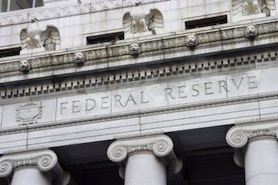 By Jeff Voudrie
By Jeff Voudrie
Yesterday, Federal Reserve Chairman Ben Bernanke announced what many are calling QE3 (Quantitative Easing round 3). I guess we need QE3 because QE1 and Q2 worked so well! (Sarcasm!) The result of the actions announced today is that the interest rates on bonds, especially mortgage-backed and longer-term Treasuries will go down. That may be positive in that it will allow homeowners who still have a credit rating to refinance at a lower rate.
In the past, the Federal Reserve has limited the duration of their actions…”We’ll do this for the next six months.” This time was different. Essentially, they removed any limits and said ‘we’ll keep doing this as long as necessary and will even take more extreme measures if necessary.”
The stock markets rallied by about 1.5%.
But what are the unintended consequences of these actions? I believe that there are several. I will just briefly state them here and may elaborate on them more fully in a follow up article.
First, by stating that they will continue indefinitely, the Fed has removed any question of what they will do or how they will respond to events in the future. Previously, the markets would try to guess Fed actions and the markets would go up or down in anticipation of their next move. If investors know already that the Fed will continue to intervene until employment recovers, then the markets will already have priced in continued action. This may actually limit the upside momentum instead of fueling it.
Second, the Fed actions are likely to create runaway inflation at some point in the future. That may actually be a good thing as compared to what has happened in Japan where for 3 decades they’ve pursued similar strategies AND THEY HAVEN’T WORKED. Even after continued stimulus the Japan economy has failed to recover. Increased inflation is a two-edged sword for retirees because it raises their expenses and forces them to move into riskier asset classes in order to offset its effects. The bigger worry, though, is that the economy doesn’t respond, that growth isn’t fueled and that stagflation continues. That’s what has occurred in Japan and they have yet to find a way to escape it.
Third, after almost 5 years of interest rates being extremely low, it is likely to continue to be that way for another 5 years or longer. Who is going to bear the worst harmful effects of this policy? Retirees who rely on their investments to provide the income they need to meet their living expenses. Before they retired (and with the encouragement of the financial planning industry), most retirees assumed the ability to consistently earn 5-7% a year during the years they will draw income off their investments. With low interest rates, it makes earning 5-7% a year MUCH more difficult and requires taking on much greater risk than it did back between 2003 and 2007. Retirees have been burned by the markets twice in the last decade and are loath to reenter the stock market in a significant way. Dividend-paying stocks have already been pushed to outrageous valuations and if retirees make the shift from bonds to equities going forward, they may be setting themselves us to get burned again at the very time they can least afford it.
As a wealth manager specializing in working with retirees, I will be examining the strategies and allocations of the accounts I manage in more detail over the next days and weeks. Currently, most accounts are more heavily weighted in more conservative bond-oriented investments that have done very well this year. Yesterday’s decision should allow those to continue to do well for a while, but I and all retirees will need to prepare for the time when interest rates aren’t able to go lower.
Fourth, many believe that today’s decision may have sealed the reelection for President Obama. That creates a plethora of additional issues that have to be considered including the business impact of higher health care costs, higher taxes, further government intrusion into business and private lives, etc. The impact of Fed actions designed to spur the economy may be offset (or neutralized) by the policies likely to result from another Obama term.
Conclusion: Retirees and those developing retired income strategies are the ones most likely to be negatively affected by yesterday’s Fed decision. The Retiree Income Crisis has only just begun and, I expect, it will last many years and that the worst is yet to come for retirees and their lifestyles.
Common Sense Advisors does not offer investment advice via this medium. Under no circumstance whatsoever do these postings, opinions, charts, or any other information represent a recommendation or personalized investment, tax, or financial planning advice.
—————————————————————-
Twitter: @JeffVoudrie @seeitmarket Facebook: See It Market
Any opinions expressed herein are solely those of the author and do not in any way represent the views or opinions of any other person or entity.








